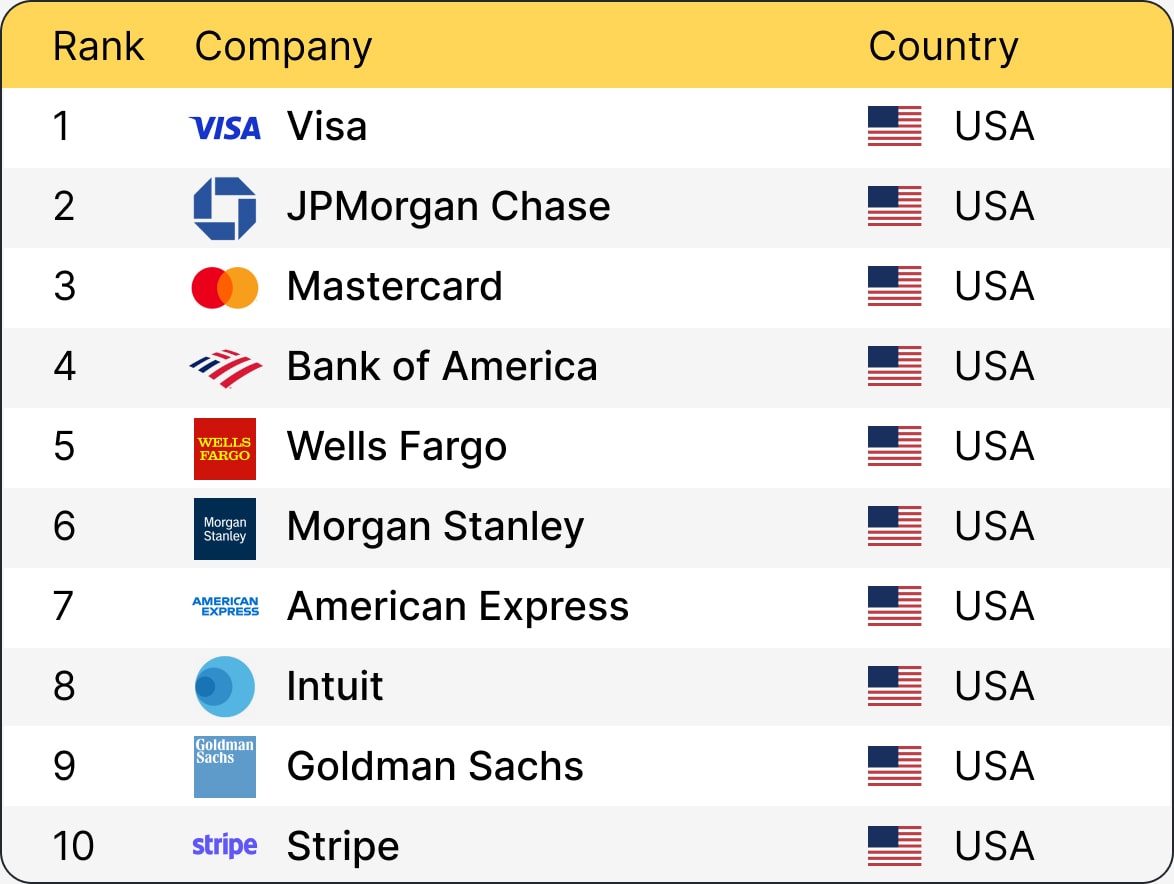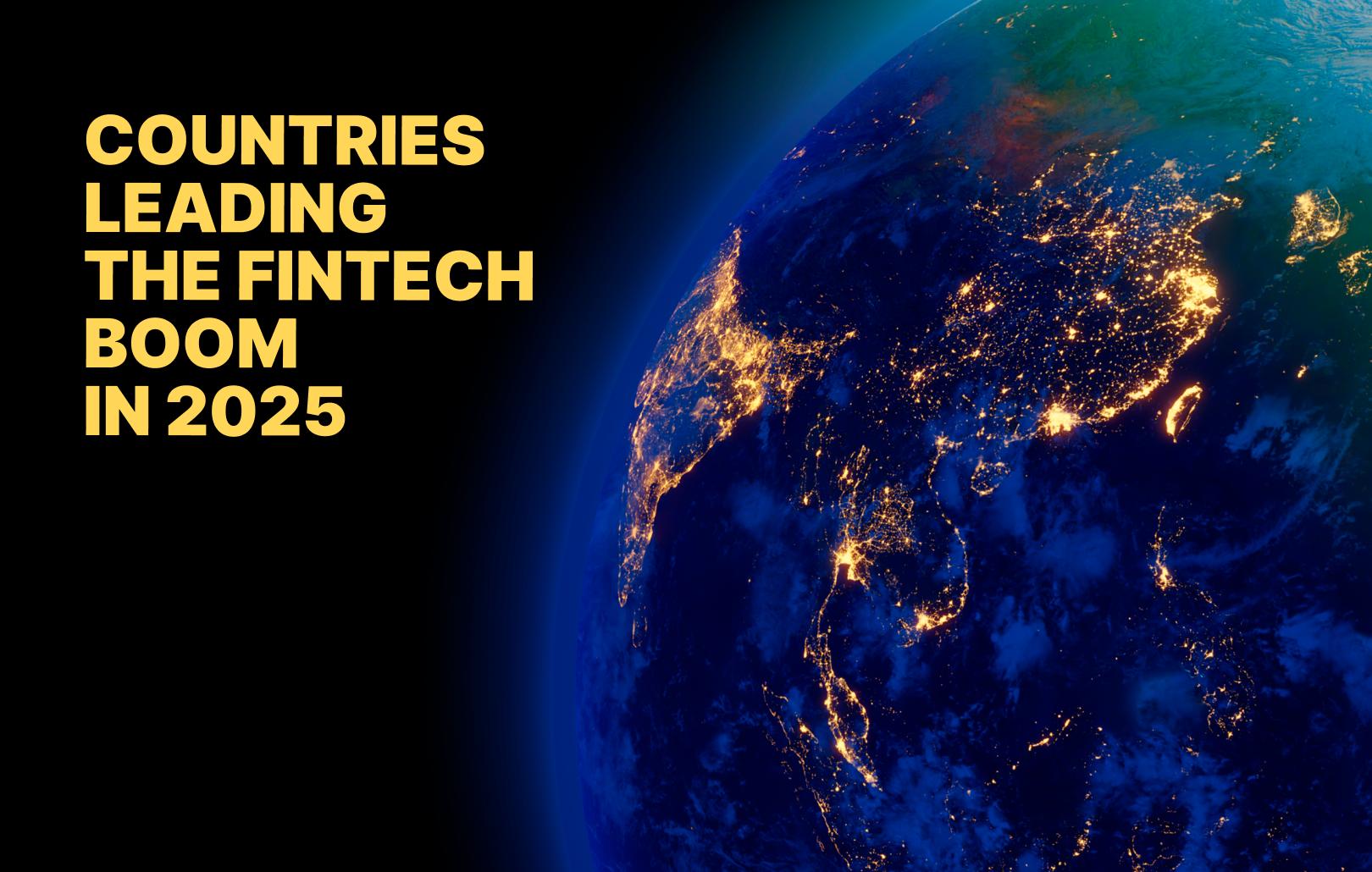Frequently Googled Questions about Fintech

To help you save time on doing all the googling yourself, we’ve curated a set of pertinent questions specifically tailored to the global fintech industry, its trends, and recent developments.
Which country is leading in fintech worldwide?
In August 2023, the United States claimed the global lead in the number of fintech unicorns, outperforming the United Kingdom, which came second, by approximately five times.
A significant majority of fintech enterprises originate from the United States. As per the September 2023 “Top 100 Companies in Fintech” ranking by fintechmagazine.com, the USA serves as the headquarters for all ten of the world’s largest fintech companies.

Here’s a regional breakdown based on 2023 Statista data:
- The Americas boasts an impressive count of over 11,000 fintech startups.
- The EMEA region (encompassing Europe, the Middle East, and Africa) is the base for approximately 10,000 fintech startups.
- The Asia Pacific region is home for around 5,000 fintech startups.
Which European country leads in fintech?
The United Kingdom has held the top position for several years running. In fact, the UK secures the #1 spot in continental Europe according to the Global Startup Ecosystem Index 2023, making it the most enticing destination for early-stage funding opportunities.
2023 data from Statista reveals that the United Kingdom is home to 353 Monetary Financial Institutions (MFIs), which refers to banks authorized to accept deposits within the UK. Among these, a substantial 129 are headquartered within the UK.
The sector hosts numerous global fintech giants, with expectations of their count reaching approximately 3,200 by 2030 (source: Innovate Finance, World Bank). To put this in context, fintech investments in the UK in 2022 amounted to $9.1 billion, making it second only to the US, which received $25.1 billion in investments.
London firmly retains its status of a global financial center, while several new hubs are emerging across other UK cities, including Edinburgh and Manchester.
What is the biggest fintech market in Europe?
The UK, Germany and France are the top 3 biggest fintech markets in continental Europe. In 2023, the UK boasted the largest number of fintech users in Europe, estimated at an impressive 106.53 million. Germany and France followed with 96.4 million and 79.4 million users, respectively.
According to the Global Startup Ecosystem Index 2023, the top 5 countries in Europe remain consistent with the previous year’s data, featuring the UK, Sweden, France, Germany, and the Netherlands. However, the European region has witnessed a decrease in the total number of startup economies in the global top 1,000, falling from 426 in 2022 to 410 in 2023. Among the top 100 worldwide, Europe is represented by 45 countries, slightly down from 46 in 2022.
Which country is leading the fintech sector in the EU?
Lithuania holds the title of being the largest fintech hub in the EU by the number of licenses issued (data by Invest Lithuania). Surprisingly, a country with a population roughly one-third the size of London is now considered Europe’s second fintech epicenter, following the UK. In 2022, Lithuania was home to a total of 263 fintech companies / EMIs, collectively employing 7,000 individuals in the fintech sector. Globally, Lithuania ranks 8th among the lowest-risk jurisdictions, as per the Basel AML index, serving a vast customer base of 25 million EU residents through licensed fintech platforms. Thanks to the EU’s seamless borders, Lithuania has access to a massive market of 500+ million EU citizens.
When it comes to fintech unicorns per capita, another Baltic state takes the lead. Estonia stands out as the European leader, boasting an impressive 2.3 fintech unicorns per million residents.
What’s the Secret of Lithuania’s Fintech Success?
Lithuania has firmly established itself as a thriving hub for innovation and entrepreneurship. Following the Brexit decision, Lithuania acted swiftly to adapt its EMI legislation, positioning itself to harness the opportunities presented by this evolving landscape. The Lithuanian government also implemented a flat corporate tax rate of 15%, which is among the lowest in Europe. Fintech takes center stage in Lithuania, with a commitment to ongoing innovation and government-backed initiatives, including the creation of a blockchain sandbox, which attracts major international players.
With a well-educated workforce, modern infrastructure, and a welcoming business climate, this country offers a unique gateway to a vibrant and forward-thinking startup community. Beyond its economic pursuits, Lithuania also maintains a distinctive voice in foreign policy while successfully nurturing a flourishing startup ecosystem.
Lithuania’s appeal is further validated by its impressive global rankings, as indicated by Invest Lithuania’s 2023 report:
- 3rd among OECD countries for corporate tax competitiveness.
- 2nd globally in IMD Digital Competitiveness Ranking by Digital / technological skills
- 8th globally for its low ML/TF (Money Laundering/Terrorist Financing) risk jurisdiction.
- 12th in the Index of Economic Freedom.
- Its capital, Vilnius, secures the 2nd position in foreign direct investment among mid-sized cities in Europe.
This exceptional environment positions Lithuania as an immensely attractive destination for new investments, solidifying its 11th place in the Global Startup Ecosystem Index 2023 – an affirmation of its exceptional allure.







